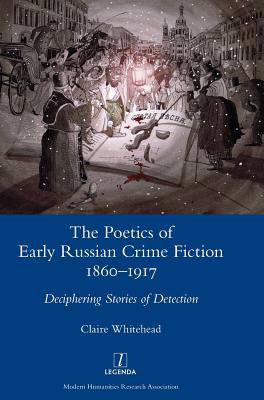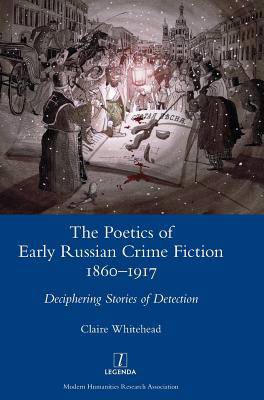
- Afhalen na 1 uur in een winkel met voorraad
- In januari gratis thuislevering in België
- Ruim aanbod met 7 miljoen producten
- Afhalen na 1 uur in een winkel met voorraad
- In januari gratis thuislevering in België
- Ruim aanbod met 7 miljoen producten
The Poetics of Early Russian Crime Fiction 1860-1917
Deciphering Stories of Detection
Claire WhiteheadOmschrijving
Crime fiction enjoys almost unparalleled success in post-Soviet Russia; but what do we know about its origins and development in the nineteenth century? Claire Whitehead's ground-breaking and in-depth study rescues early Russian crime fiction from obscurity and undertakes a detailed examination of how the genre harnesses various storytelling techniques to create its striking effects. The author offers exciting new discussions of works by Fedor Dostoevskii and Anton Chekhov, while directing much of the spotlight towards the significant contribution made by numerous unknown and underrated writers, including Nikolai Sokolovskii, Nikolai Timofeev, Semyon Panov, Aleksandr Shkliarevskii, Aleksandra Sokolova and Andrei Zarin. Beginning with an examination of the generic hybridity of Russian crime fiction at its inception, attention then turns to various aspects of the genre's textual poetics. Chapters focus upon issues of narrative authority, multiplicity of voice, time structure, intertextuality, narrative self-consciousness and, finally, parody, to consider how the texts manipulate the reader's access to knowledge.
Claire Whitehead is Senior Lecturer in the Department of Russian at the University of St Andrews.
Specificaties
Betrokkenen
- Auteur(s):
- Uitgeverij:
Inhoud
- Aantal bladzijden:
- 280
- Taal:
- Engels
- Reeks:
Eigenschappen
- Productcode (EAN):
- 9781781886878
- Verschijningsdatum:
- 3/09/2018
- Uitvoering:
- Hardcover
- Formaat:
- Genaaid
- Afmetingen:
- 170 mm x 244 mm
- Gewicht:
- 644 g

Alleen bij Standaard Boekhandel
Beoordelingen
We publiceren alleen reviews die voldoen aan de voorwaarden voor reviews. Bekijk onze voorwaarden voor reviews.









